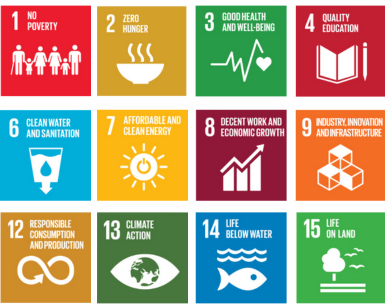

ISO 14001 Environmental Management Systems
ISO 14001 is an international standard prescribing a structured approach to environmental protection.
It enables organisations of all sizes to develop and implement policies to deliver environmentally responsible and sustainable business practices.
What is ISO 14001 Environmental Management System and How do you get Certified?
Learn step-by-step how organisations can get certified to ISO 14001 and display the 5 Ticks StandardsMark™ – only available with successful certification from Intertek SAI Global.
Watch NowKey Benefits
Meet Compliance Requirements
Build confidence and trust with stakeholders by providing evidence that your organisation complies with its legal obligations.
Support Longer Term Strategic Focus
Future-proof your business and drive sustainable development by adopting environmentally sound processes that strengthen your market position.
Drive Corporate Social Responsibility
Improve your company’s reputation and build public confidence in your brand by taking a responsible approach to environmental management.
What Is It?
Setting the international best-practice for environmental management, the ISO 14001 standard achieves this through a systematic approach.
All organisations can benefit from a systematic approach to environmental management. Adopting an environmental management system will improve your ability to manage environmental responsibilities in a systematic manner, providing value for the environment, your organisation and stakeholders.Certification to ISO 14001 demonstrates your commitment to environmental outcomes across all aspects of your organisation.ISO 14001 defines an environmental management system drawing on the plan-do-check-act (PDCA) model and risk-based thinking to create a framework for balancing the three pillars of sustainability: development; transparency; and accountability.
Scope
ISO 14001 describes requirements for an environmental management system that can achieve an enhancement of environmental performance; fulfill compliance obligations and achieve environmental objectives.
Context of the Organisation
The organisation must understand the external and internal factors that may affect its ability to achieve the desired results.
Leadership
The organisation’s leaders must commit to the environmental management system, taking accountability for the effectiveness and success by providing sufficient resources, ensuring the environmental policy and objectives are in place, and clearly communicating roles, responsibilities and authorities clear.
Planning
Planning must address actions to address risks and opportunities; environmental objectives and how to achieve them; and change management.
Support
The organisation must ensure sufficient resources are allocated to the environmental management system; including the establishment, implementation, maintenance and continual improvement; and carefully monitor their use and effectiveness.
Operation
The organisation should plan, implement and control processes, using a lifecycle process, to meet requirements for providing its products and services.
Performance Evaluation
The organisation must be able to demonstrate and verify process capability as specified by the customer’s approval process requirements.
Improvement
ISO 14001 requires a commitment to continual improvement, including managing nonconformities, solving problems, error-proofing, and taking corrective action when required.
ISO 14001:2015/AMD 1:2024
The amendment to ISO 14001:2015, titled AMD 1:2024, focuses on “Climate action changes” in the realm of Environmental Management Systems. This amendment reflects a current and forward-looking approach by integrating climate action considerations into the environmental management systems framework.
FIND OUT MOREAligning with the UN Sustainable Development Goals (SDGs)
ISO 14001:2015 contributes to the following Sustainable Development Goals


Looking to transfer your existing ISO 14001 certification?
Partner with the leading provider of Audit and Certification services in Australia and transfer your certification to Intertek SAI Global to display the 5 Ticks StandardsMark™.
Are You Ready To Take The Next Step to Certification?
Request a callback from one of our certification experts to have a no-obligation discussion around getting certified to ISO 14001:2015 with Intertek SAI Global.
Assurance Training
As a leading provider of education and training, Intertek SAI Global Assurance Learning offers a wide range of training courses to help you learn, plan, implement, assess and improve your management system.

